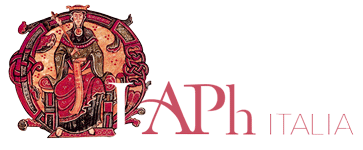
- Questo evento è passato.
Challenging Capitalist Modernity III: Uncovering Democratic Modernity Resistance, Rebellion and Building the New
15 Gennaio 2017
Capitalism is stuck in a structural crisis and losing legitimacy worldwide despite the claim that no alternatives ―
exist. At the same time right-wing and reactionary movements offer themselves as alternatives.
But there are other ways than the seemingly only alternatives. In Rojava/North Syria it was possible not only to
not take sides but to establish an own, “third way”. The building of a non-patriarchal system and a democratic
economic order seems within reach and has the chance to establish itself permanently.
Such “third ways” are possible everywhere in the world. At our third conference we want to present, shed light
on/examine and discuss them.
The third conference “Challenging Capitalist Modernity III: Uncovering Democratic Modernity Resistance, ―
Rebellion and Building the New” is taking place around Easter (14 16 April) 2017 in Hamburg. ―
The past two conferences brought together not only leading intellectuals, but also gave young activists, students
and scholars a chance to present their ideas. In this third conference we want to once again build bridges between
all these and movements in Kurdistan and worldwide.
With that in mind we ask you once again to respond to our “Call for papers” on four topics. The authors of the
best submissions will be invited to present their paper at the conference.
1 ― Genealogy of the State
The forms that state and power assume throughout civilizational history are subject to transformations. How do
ideological constructs like patriarchy, religions, nationalism, militarism and scientism become ever new armors
for the state and class society? How do they relate to freedom and the lack of it?
2 ― Philosophy of History
Öcalan describes history mainly as a history of struggles between state-civilization and pre-state village and agricultural
communities. At the same time he attributes utmost importance to historical consciousness for the build –
ing of a liberated society. So why does it matter how we look at history?
3 ― Moral and political society
Öcalan bases his analysis of democratic civilization and his model of democratic modernity on what he calls the
“moral and political society”. Why does this become the cornerstone of his model and how is it related to freedom?
How does it supplement and/or differ from Marxism and other schools of thought?
4 ― Ecological economy, city and countryside
Öcalan emphasizes the hostility of cities towards life and develops a vision of ecological villages. A profound ecological
transformation must address fundamental questions about the relation between city and countryside.What can the relation between cities and villages look like under the premise of democratic confederalism?
Technical information for submission of papers
• The text should be around 1500 words but definitely not longer than 2000 words
• Intention of responding to call for papers should be declared by sending an abstract no longer than 300
words by 15 January 2017
• Everybody who has sent an abstract should send their final papers for refereeing by 10 March 2017
• Those who will be presenting their papers shall be announced by 20 March 2017
• The email address for all communication is cfp@networkaq.net
Contact address
cfp@networkaq.net
